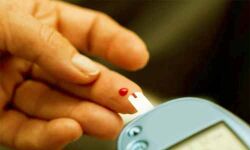- Home
- Medical news & Guidelines
- Anesthesiology
- Cardiology and CTVS
- Critical Care
- Dentistry
- Dermatology
- Diabetes and Endocrinology
- ENT
- Gastroenterology
- Medicine
- Nephrology
- Neurology
- Obstretics-Gynaecology
- Oncology
- Ophthalmology
- Orthopaedics
- Pediatrics-Neonatology
- Psychiatry
- Pulmonology
- Radiology
- Surgery
- Urology
- Laboratory Medicine
- Diet
- Nursing
- Paramedical
- Physiotherapy
- Health news
- Fact Check
- Bone Health Fact Check
- Brain Health Fact Check
- Cancer Related Fact Check
- Child Care Fact Check
- Dental and oral health fact check
- Diabetes and metabolic health fact check
- Diet and Nutrition Fact Check
- Eye and ENT Care Fact Check
- Fitness fact check
- Gut health fact check
- Heart health fact check
- Kidney health fact check
- Medical education fact check
- Men's health fact check
- Respiratory fact check
- Skin and hair care fact check
- Vaccine and Immunization fact check
- Women's health fact check
- AYUSH
- State News
- Andaman and Nicobar Islands
- Andhra Pradesh
- Arunachal Pradesh
- Assam
- Bihar
- Chandigarh
- Chattisgarh
- Dadra and Nagar Haveli
- Daman and Diu
- Delhi
- Goa
- Gujarat
- Haryana
- Himachal Pradesh
- Jammu & Kashmir
- Jharkhand
- Karnataka
- Kerala
- Ladakh
- Lakshadweep
- Madhya Pradesh
- Maharashtra
- Manipur
- Meghalaya
- Mizoram
- Nagaland
- Odisha
- Puducherry
- Punjab
- Rajasthan
- Sikkim
- Tamil Nadu
- Telangana
- Tripura
- Uttar Pradesh
- Uttrakhand
- West Bengal
- Medical Education
- Industry
Blood sugar control may prevent loss of muscle mass in diabetics: Study

Japan: The use of insulin and correction of poor blood sugar control significantly increased gait speed or skeletal muscle mass in Japanese patients with type 2 diabetes (T2D), suggests a recent study. The study, published in the Journal of Post-Acute and Long-Term Care Medicine, sheds light on the importance of blood sugar control for the prevention of sarcopenia and cardiovascular diseases (CVDs).
Type 2 diabetes is a known risk factor for geriatric syndrome, including cognitive dysfunction, depressive symptoms, and sarcopenia. Sarcopenia is muscle disease defined by a combination of weak muscle strength, low muscle mass, and declining physical function.
Previous studies have shown a linear positive association between glycated hemoglobin (HbA1c), blood sugar levels and sarcopenia frequency in type 2 diabetes patients (middle-aged to older age). Another study on older diabetic patients reported HbA1c ≥8.0% (64 mmol/mol) to be a risk factor for the decline in muscle quality, independent of diabetes duration. However, there is a limited evidence on sarcopenia prevention using blood sugar llowering therapy. With this background, Hiromi Rakugi, Osaka University Graduate School of Medicine, Japan, and colleagues aimed to examine the relationship between changes in blood sugar control and sarcopenia and the effect of antidiabetic agents against sarcopenia in type 2 diabetes patients.
For the purpose, the researchers performed an observational longitudinal study including 588 Japanese diabetic patients of an ongoing multicenter study. They completed 1-year follow-up measurements for sarcopenia and clinical data.
In the study, the researchers analyzed data set of the Multicenter Study for Clarifying Evidence for Sarcopenia in patients with Diabetes Mellitus (the MUSCLES-DM study) was analyzed.
Key findings of the study include:
- During the follow-up period, the frequency of sarcopenia marginally increased, and the means of skeletal muscle mass index (SMI), handgrip strength, and gait speed did not show any changes.
- On dividing into 5 groups depending on the degree of changes in glycated hemoglobin (HbA1c) value, the patients with a decrease of ≥1% in HbA1c exhibited a significant increase in SMI.
- Our analysis revealed similar results for gait speed but not handgrip strength.
- Using the multiple linear regression model, they found that a ≥1% decrease in HbA1cvalue was an independent determinant of the changes in SMI and gait speed.
- The researchers also determined that insulin use at baseline was an independent factor for the changes in SMI.
"The current finding increases our understanding of the importance of glycemic control for the prevention of cardiovascular diseases and sarcopenia," concluded the authors.
"Glycemic Control and Insulin Improve Muscle Mass and Gait Speed in Type 2 Diabetes: The MUSCLES-DM Study," is published in the Journal of Post-Acute and Long-Term Care Medicine.
DOI: https://www.jamda.com/article/S1525-8610(20)30967-1/fulltext
Dr Kamal Kant Kohli-MBBS, DTCD- a chest specialist with more than 30 years of practice and a flair for writing clinical articles, Dr Kamal Kant Kohli joined Medical Dialogues as a Chief Editor of Medical News. Besides writing articles, as an editor, he proofreads and verifies all the medical content published on Medical Dialogues including those coming from journals, studies,medical conferences,guidelines etc. Email: drkohli@medicaldialogues.in. Contact no. 011-43720751


